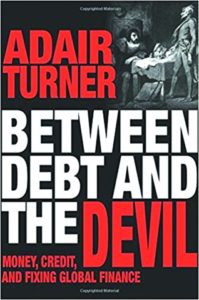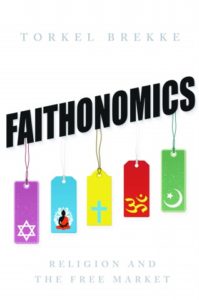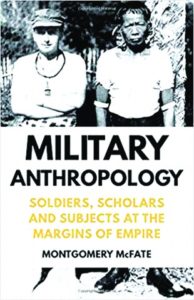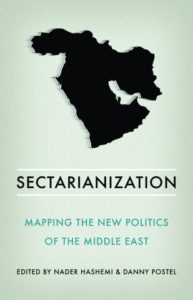

Between Debt and the Devil: Money, Credit, and Fixing Global Finance
Adair Turner
Princeton University Press (2015)
Adair Turner became chairman of Britain’s Financial Services Authority just as the global financial crisis struck in 2008, and he played a leading role in redesigning global financial regulation. In this eye-opening book, he sets the record straight about what really caused the crisis. It didn’t happen because banks are too big to fail―our addiction to private debt is to blame.
Between Debt and the Devil challenges the belief that we need credit growth to fuel economic growth, and that rising debt is okay as long as inflation remains low. In fact, most credit is not needed for economic growth―but it drives real estate booms and busts and leads to financial crisis and depression. Turner explains why public policy needs to manage the growth and allocation of credit creation, and why debt needs to be taxed as a form of economic pollution. Banks need far more capital, real estate lending must be restricted, and we need to tackle inequality and mitigate the relentless rise of real estate prices. Turner also debunks the big myth about fiat money―the erroneous notion that printing money will lead to harmful inflation. To escape the mess created by past policy errors, we sometimes need to monetize government debt and finance fiscal deficits with central-bank money.
Between Debt and the Devil shows why we need to reject the assumptions that private credit is essential to growth and fiat money is inevitably dangerous. Each has its advantages, and each creates risks that public policy must consciously balance.
Adair Turner is a British businessman and academic and was Chairman of the Financial Services Authority until its abolition in March 2013.

Al-Qaeda 2.0: A Critical Reader
Baldvin Donald Holbrook
Oxford University Press (2017)
On 16 June 2011, three days before his sixtieth birthday, Ayman al-Zawahiri was declared the new leader of Al- Qaeda, replacing the fallen Osama bin Laden. The veteran Egyptian jihadist had little of his predecessor’s charisma and enjoyed much less popularity, respect and celebrity. Yet, as scores of jihadi commanders from different organisations have succumbed to their enemies’ missiles, bombs and bullets, Zawahiri has soldiered on. His tenure as Al-Qaeda’s leader has been marked by some of its darkest and most challenging moments, which have threatened the viability and future of Al-Qaeda’s central leadership. The gravest such development has been the emergence of Islamic State as a separate and rival jihadist entity.
The best way to gauge Zawahiri’s response to these threats is by studying the official statements and public communiqués that he has issued since taking the reins. This book provides the reader with professional translations of Zawahiri’s key statements during his first five years as leader of Al-Qaeda. These official communications are introduced and contextualised to provide the reader with a comprehensive sourcebook, outlining the Al-Qaeda leadership’s stance on the challenges to its existence since the death of bin Laden.
Donald Holbrook is a Lecturer in the Department of Politics, Philosophy and Religion at the University of Lancaster. He was previously a Senior Research Fellow at the Centre for the Study of Terrorism and Political Violence, University of St Andrews. His publications include The Al-Qaeda Doctrine: The Framing and Evolution of the Leadership’s Public Discourse (2014).

Faithonomics: Religion and the Free Market
Torkel Brekke
Hurst Publishers (2016 )
Faithonomics uses economic theory to provide a new and unorthodox view of religion in today’s world.
Many of today’s problems related to religion, like religious terrorism or rent-seeking by religious political parties, are easier to understand if we think like economists. Torkel Brekke looks at today’s religious marketplace and at the religious markets of the past, through sweeping histories of Christianity, Islam, Buddhism and Hinduism, to show that heavy regulation of religious choice by states has often caused unforeseen and negative consequences.
Drawing on ground-breaking research and case studies from around the globe, Faithonomics argues that religion should be treated exactly like any other commodity that can be bought and sold, like bottled water or haircuts, and that deregulation of the religious marketplace will ultimately foster more harmonious societies.
Torkel Brekke is Deputy Director and Research Professor at the Peace Research Institute Oslo (PRIO). He is also a research theme leader at the Centre for Research on Extremism (C-REX) at the University of Oslo and works part time for the liberal think tank Civita. He has written and edited twelve books and numerous articles, mostly about religion and politics, including Fundamentalism: Prophecy and Protest in an Age of Globalisation (2012).

Military Anthropology: Soldiers, Scholars and Subjects at the Margins of Empire
Montgomery McFate
Hurst Publishers (2018)
In almost every military intervention in its history, the US has made cultural mistakes that hindered attainment of its policy goals. From the strategic bombing of Vietnam to the accidental burning of the Koran in Afghanistan, it has blundered around with little consideration of local cultural beliefs and for the long-term effects on the host nation’s society. Cultural anthropology—the so-called ‘handmaiden of colonialism’—has historically served as an intellectual bridge between Western powers and local nationals. What light can it shed on the intersection of the US military and foreign societies today?
This book tells the story of anthropologists who worked directly for the military, such as Ursula Graham Bower, the only woman to hold a British combat command during WWII. Each faced challenges including the negative outcomes of exporting Western political models and errors of perception.
Ranging from the British colonial era in Africa to the recent wars in Iraq and Afghanistan, Military Anthropology illustrates the conceptual, cultural and practical barriers encountered by military organisations operating in societies vastly different from their own.
Montgomery McFate is Professor at the US Naval War College in Newport, Rhode Island. Formerly, she was the Senior Social Scientist for the US Army’s Human Terrain System. McFate holds a PhD in Anthropology from Yale University, and a JD from Harvard Law School. She is the co-editor of Social Science Goes to War (2015).

Sectarianization: Mapping the New Politics of the Middle East
Edited by Nader Hashemi and Danny Postel
Hurst Publishers (2017)
As the Middle East descends ever deeper into violence and chaos, ‘sectarianism’ has become a catch-all explanation for the region’s troubles. The turmoil is attributed to ‘ancient sectarian differences’, putatively primordial forces that make violent conflict intractable. In media and policy discussions, sectarianism has come to possess trans-historical causal power.
This book trenchantly challenges the lazy use of ‘sectarianism’ as a magic-bullet explanation for the region’s ills, focusing on how various conflicts in the Middle East have morphed from non-sectarian (or cross-sectarian) and nonviolent movements into sectarian wars. Through multiple case studies — including Syria, Iraq, Lebanon, Saudi Arabia, Bahrain, Yemen and Kuwait — this book maps the dynamics of sectarianisation, exploring not only how but also why it has taken hold. The contributors examine the constellation of forces — from those within societies to external factors such as the Saudi–Iranian rivalry — that drive the sectarianisation process and explore how the region’s politics can be de-sectarianised.
Featuring leading scholars — and including historians, anthropologists, political scientists, scholars of religion and international relations theorists — this book will redefine the terms of debate on one of the most critical issues in international affairs today.
Nader Hashemi is Director of the Center for Middle East Studies and an Associate Professor of Middle East and Islamic Politics at the University of Denver’s Josef Korbel School of International Studies. He is the author of Islam, Secularism and Liberal Democracy and co-editor of The Syria Dilemma and The People Reloaded: The Green Movement and the Struggle for Iran’s Future.
Danny Postel is Assistant Director of the Middle East and North African Studies Program at Northwestern University and the former Associate Director of the Center for Middle East Studies at the University of Denver’s Josef Korbel School of International Studies. He is the author of Reading ‘Legitimation Crisis’ in Tehran and co-editor of The Syria Dilemma and The People Reloaded: The Green Movement and the Struggle for Iran’s Future.

